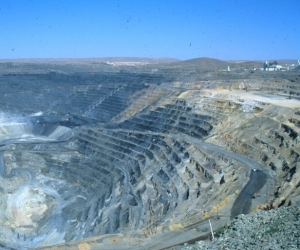A Chance for Municipal Leaders To Get In-Step with Public Interests on Mining
Ah, the perfect neighbourhood… Schools close by, lovely green space, pleasant neighbours… and an open pit mine. An open pit mine? Not exactly what you had in mind when you purchased your home?

It may sound far-fetched, but this scenario could become reality for some residents of Kamloops. A proposed mine is partly within city limits, and only two kilometers from the nearest elementary school. Residents are concerned about property values, blasting noise, health implications of dust, and impacts to slope stability and well water.
On Monday, the Union of BC Municipalities will have an opportunity to take an important step toward the solution to situations like this with their vote on a resolution to modernize BC’s antiquated mining laws. Passing the resolution would show that municipal leaders are getting in step with public interest in changing mining practices and procedures to better reflect the expectations and values of British Columbians today.
What’s wrong with current mining law?
Put simply, BC’s Mineral Tenure Act puts mining interests ahead of all other interests. For example, landowner consent is not needed prior to mineral exploration and mining. Mining claims are staked through a simple, online process by anyone who possesses a Free Miner Certificate. Any Canadian resident, company, or individual authorised to work in Canada can easily obtain a Free Miner Certificate. Once they stake a claim, they can access their claim at any time, even if it is on private property. They do not need the landowner’s permission.
Other concerns are that mines are allowed in municipal watersheds, within city limits, on agricultural lands, and even in some parks. There’s no requirement that a miner consult with municipalities or with First Nations. The BC government has no freedom to decide to deny a mineral lease.
How can we fix it?
A new Mineral Tenure Act could balance the needs of the mining industry with other economic and cultural activities. Laws from other regions in Canada and other countries around the world provide good starting points for reform. For example:
- Require that miners and prospectors obtain landowner consent before exploring on private property. Many regions require this, including our neighbours in Alberta, as well as Newfoundland, Labrador, New Brunswick, Victoria (Australia), Germany, the Philippines, and Mali. Incidentally, this kind of law doesn’t exist in the United States because landowners there hold the mineral rights to their land.
- Replace the free-entry system with a competitive bidding system. BC already has a bidding system for petroleum and natural gas, and Queensland, Australia, has similar systems for petroleum and coal.
- Grant the provincial government the ability to set aside certain known reserves for future generations. This would help ensure the long-term prosperity of the province. India’s government has this ability.
- Restrict mining activities to areas designated by land use plans. Land use plans in the Yukon, the Northwest Territories, the US, West Virginia, and Sweden all have this legal weight.
- Recognise the right of First Nations to designate mining no-go zones. In northern Ontario, New Zealand and Columbia, Indigenous people can designate defined areas as off limits to mining activities.
- Designate mining no-go zones that reflect British Columbian’s values and expectations. These should include drinking water source areas, important watercourses, agricultural lands, parks, conservancies and protected areas. Laws in many other jurisdictions protect these kinds of areas.
Mining will always play an important role in BC’s economy, but we need to find the right balance. Other economic interests, cultural and environmental concerns should also carry legal weight. A new Mineral Tenure Act could accomplish this.
For more information on the above examples, check out Chapter 4 of our Fair Mining Practices: Mineral Tenure and Land Use Planning.